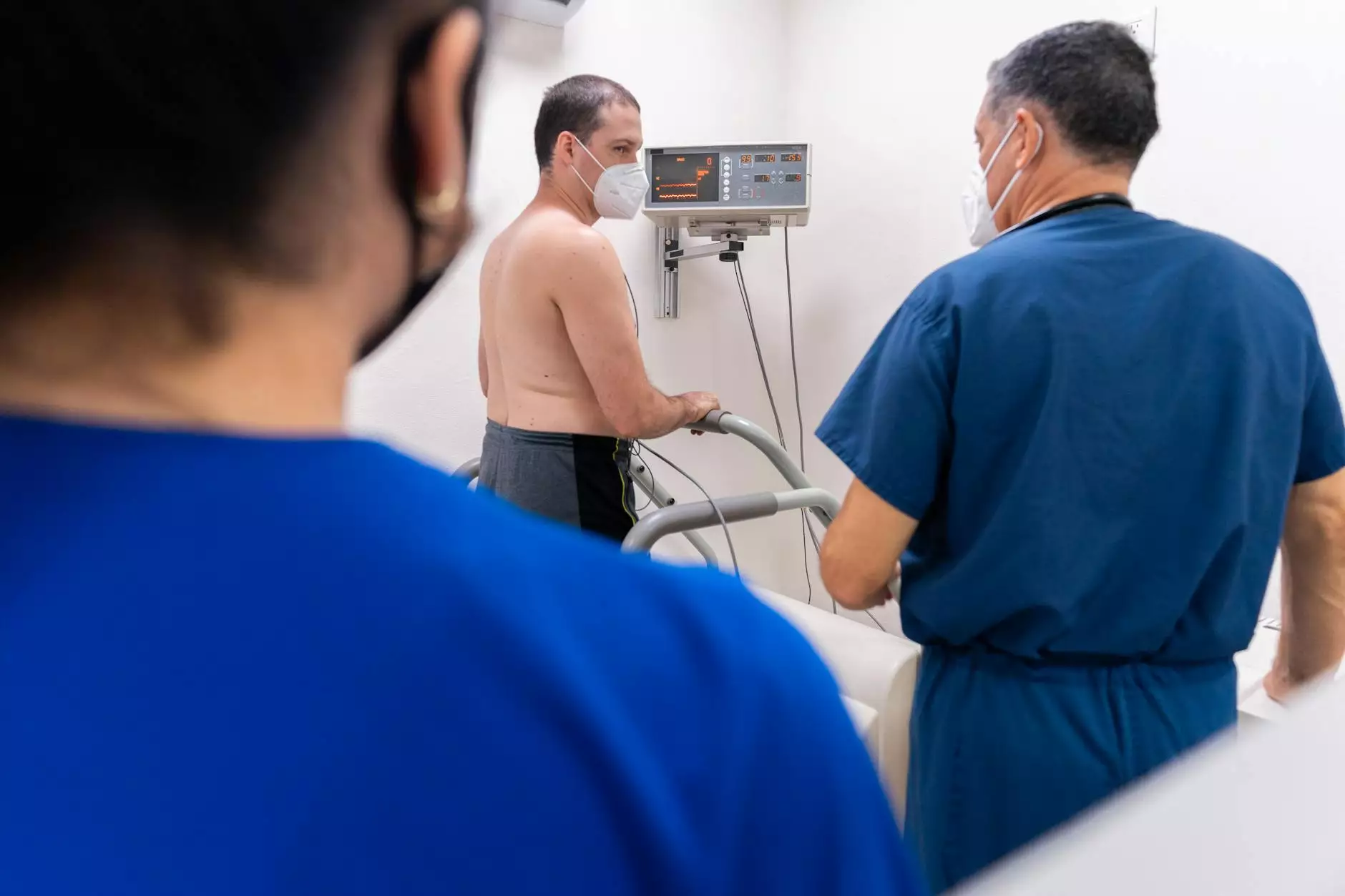Finding a Qualified Cardiologist Near You

When it comes to maintaining your heart health, finding a cardiologist near me is crucial. Cardiologists are specialized doctors who diagnose and treat heart conditions and diseases. This article aims to provide you with all the information you need to make an informed choice when looking for a cardiologist, ensuring you find the right healthcare professional to attend to your heart health needs.
The Importance of Heart Health
Your heart is one of the most vital organs in your body, responsible for pumping blood and delivering oxygen to your tissues. Heart disease remains a leading cause of death worldwide, making regular check-ups and consultations with a cardiologist essential for everyone, especially if you have risk factors such as high blood pressure, obesity, or a family history of heart disease. Every heartbeat counts, and understanding how to care for your heart is imperative.
What Does a Cardiologist Do?
Cardiologists specialize in various aspects of heart health, including diagnosing and treating conditions such as:
- Coronary artery disease
- Heart attacks
- Arrhythmias
- Heart failure
- Valvular heart disease
Both clinical and procedural interventions are part of a cardiologist's repertoire, which may include diagnostic tests such as EKGs, echocardiograms, and stress tests, along with treatment options such as medication management and catheter-based procedures.
Choosing the Right Cardiologist
Finding the best cardiologist near me involves a few key steps. Here’s how you can ensure you’re making the right choice:
1. Research Credentials and Experience
When searching for a cardiologist, start by looking at their qualifications. Check the educational background, board certifications, and any fellowships completed in cardiology. It’s also essential to consider their experience, as a seasoned cardiologist will diagnose and treat conditions more efficiently.
2. Read Reviews and Seek Recommendations
Online reviews and patient testimonials can provide significant insight into the experiences of others. Websites like Healthgrades or Zocdoc are useful for gathering reviews. Additionally, consider asking your primary care physician for recommendations, as they often have established relationships with local specialists.
3. Look for Specialized Areas of Practice
Some cardiologists focus on specific heart conditions or treatments. For instance, if you have a known heart condition, check if the cardiologist has experience treating it. There are sub-specialties within cardiology, such as:
- Interventional cardiology (procedures like angioplasty)
- Pediatric cardiology (heart issues in children)
- Electrophysiology (arrhythmias and electrical systems of the heart)
4. Assess the Communication Style
Having a good rapport with your cardiologist is vital for effective treatment. During your first consultation, observe how they communicate. They should be able to explain complex medical terms in simple language, and you should feel comfortable asking questions.
What to Expect During Your Visit
Your first visit to a cardiologist can be intimidating. Here’s what you can typically expect:
Initial Consultation
The cardiologist will ask about your medical history and any symptoms you're experiencing. It's important to provide comprehensive information regarding:
- Your family history of heart disease
- Your lifestyle, including diet and exercise routines
- Any medications you are currently taking
Diagnostic Tests
Based on your consultation, the cardiologist may recommend some diagnostic tests, including:
- Electrocardiogram (EKG): Measures the electrical activity of the heart.
- Echocardiogram: Uses sound waves to create images of your heart.
- Stress Test: Assesses how your heart performs under physical stress.
Preparing for Your Appointment
Preparation can help ensure a productive appointment. Consider these tips:
- Bring a list of medications you take, including dosages.
- Prepare questions in advance to address your concerns.
The Role of Technology in Cardiology
Advancements in medical technology have transformed cardiology. Modern diagnostics, such as telemedicine and heart monitoring devices, enable more accessible and timely care. Remote consultations allow you to meet with your cardiologist without leaving home, making it easier to schedule appointments around your life.
Understanding Treatment Options
If diagnosed with a heart condition, it's crucial to understand your treatment options. They may include:
- Lifestyle Changes: Diet modifications and regular exercise are fundamental for heart health.
- Medications: Depending on your condition, you may need medications to manage symptoms and reduce risks.
- Procedures: Surgical interventions may be necessary for severe conditions.
The Importance of Follow-Up Care
Maintaining regular follow-ups with your cardiologist is essential for monitoring your heart health. Continuous dialogue about your treatment progress allows your cardiologist to adjust medications and treatments as needed based on how you are responding.
How to Maintain a Healthy Heart
Beyond visiting a cardiologist near me, there are many lifestyle choices you can make to support your heart health:
- Eat a balanced diet: Include whole grains, fruits, vegetables, lean proteins, and healthy fats.
- Exercise regularly: Aim for at least 150 minutes of moderate aerobic activity each week.
- Avoid smoking: Quitting smoking dramatically reduces your risk of heart disease.
- Manage stress: Techniques like meditation and yoga can help maintain your mental well-being.
Conclusion
Choosing the right cardiologist near me is critical to ensuring your heart health. From understanding what a cardiologist does to preparing for your appointment, this guide serves to equip you with the knowledge necessary for making informed decisions about your heart care. Always prioritize regular check-ups and advocate for your heart health, as it is not just a vital organ but also the core of your well-being.
When you search for a cardiologist near me, consider all the factors discussed in this article to help find the most qualified professional who meets your specific health needs. Taking action towards a healthier heart is a step towards a better quality of life.









